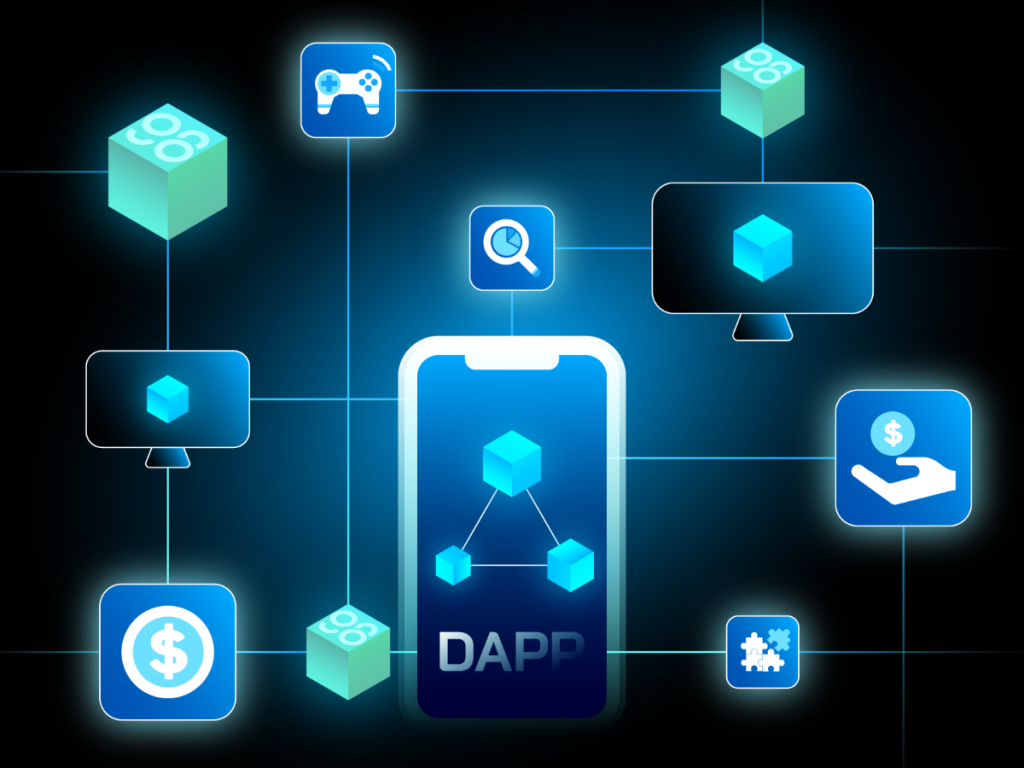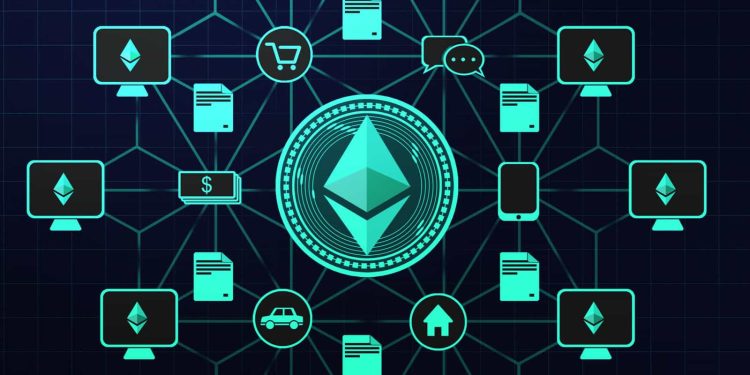The emergence of Decentralized Applications (DApps) powered by blockchain technology has ignited significant discussions on how they could potentially disrupt and transform the current internet infrastructure. Unlike traditional centralized applications that rely on a single central server or authority, DApps leverage decentralized networks such as blockchain to operate without intermediaries, offering numerous advantages in terms of security, transparency, and user autonomy. But can DApps truly disrupt the traditional architecture of the internet, which has been dominated by centralized systems for decades?
This article explores the potential of DApps to challenge and revolutionize existing internet models, the benefits they offer, the challenges they face, and the future of decentralized technologies.
What are Decentralized Applications (DApps)?
DApps are applications that run on decentralized networks, typically built on blockchain platforms such as Ethereum, Polkadot, or Solana. Unlike traditional apps that operate through a central server or authority, DApps use smart contracts and peer-to-peer (P2P) networks to manage transactions and interactions between users.
Some of the key characteristics of DApps include:
- Decentralized Control: No central authority controls the application, as the data and code are distributed across a network of nodes.
- Open Source: Most DApps are open-source, meaning that anyone can review, contribute to, or modify the underlying code.
- Transparency: Data stored in a blockchain is immutable and publicly accessible, providing greater transparency in operations.
- Tokenization: Many DApps utilize cryptocurrency tokens as part of their functionality, whether for payment, governance, or incentivizing participation.
These features make DApps fundamentally different from centralized applications, which rely on a central server and are subject to the control and oversight of a specific company or authority.
How Can DApps Challenge Traditional Internet Architecture?
- Elimination of Centralized Intermediaries Traditional internet services are largely centralized, with intermediaries such as Google, Facebook, and banks controlling data, transactions, and interactions. These intermediaries often act as gatekeepers, controlling access to information, services, and even financial transactions. DApps, on the other hand, remove the need for such intermediaries by enabling peer-to-peer interactions.
- Example: In the case of a decentralized finance (DeFi) application, users can lend, borrow, or trade digital assets without the need for a bank or financial institution acting as an intermediary. The entire process is governed by smart contracts, which automatically execute transactions when predefined conditions are met.
- User Data Ownership and Privacy One of the most pressing concerns with centralized applications is the collection, storage, and control of user data. Centralized platforms often monetize user data, sometimes without the user’s full awareness or consent. DApps, by contrast, enable users to retain control over their data and decide how and when it is shared.
- Example: In a decentralized social media platform, users could own their content and data, making it impossible for a central authority to sell or misuse personal information. The use of blockchain ensures that interactions are transparent, secure, and stored immutably, giving users more control and trust in the platform.
- Increased Transparency and Trust DApps leverage blockchain’s inherent transparency to ensure that all actions and transactions are publicly recorded and cannot be altered once committed to the blockchain. In centralized systems, users often have to trust the platform provider to act fairly and transparently. With DApps, the trust is placed in the blockchain and smart contracts, reducing reliance on any single entity.
- Example: In a decentralized supply chain application, every transaction and movement of goods is recorded on the blockchain, allowing consumers and businesses to track products from origin to destination with complete transparency.
- Resilience and Reduced Censorship Centralized applications and platforms are vulnerable to censorship, whether through government intervention, corporate policies, or technical failures. DApps, being decentralized and distributed across multiple nodes, are inherently more resistant to censorship and downtime.
- Example: A decentralized file-sharing application, such as IPFS (InterPlanetary File System), stores data across a global network of nodes rather than a central server, ensuring that files are always accessible even if some nodes are taken offline.

Challenges DApps Face in Disrupting the Internet
Despite their transformative potential, DApps face several challenges that may hinder their widespread adoption and ability to fully disrupt the existing internet infrastructure:
- Scalability Issues One of the major hurdles for DApps is scalability. Traditional centralized systems can handle a large volume of transactions and users due to the centralized control of resources. In contrast, decentralized networks often face limitations in transaction speed and scalability due to the consensus mechanisms required to validate and secure transactions.
- Example: Ethereum, one of the most widely used platforms for DApps, has faced issues with network congestion and high transaction fees during periods of high demand, such as during popular ICOs or DeFi activity. This has led to delays and made some applications less efficient.
- User Experience and Accessibility Many DApps currently require users to have a certain level of technical knowledge to interact with them. For example, users must typically manage cryptocurrency wallets, navigate blockchain platforms, and understand concepts like gas fees and transaction confirmation times. This steep learning curve may deter the general public from adopting decentralized applications.
- Example: Decentralized finance applications, while powerful, often have interfaces that are complex for the average user to understand, especially for those who are not familiar with cryptocurrency or blockchain technology.
- Regulatory and Legal Concerns Many countries and regions are still developing regulatory frameworks around blockchain and cryptocurrency. The decentralized nature of DApps presents challenges when it comes to enforcing laws, particularly regarding data privacy, taxation, and anti-money laundering (AML) regulations.
- Example: DApps operating in the DeFi space have raised concerns among regulators due to their potential use for money laundering or circumventing traditional financial regulations.
- Network Effects of Existing Platforms The existing internet infrastructure is dominated by large centralized platforms like Google, Facebook, and Amazon. These platforms benefit from network effects, where the value of the service increases as more users join. DApps, being in the early stages of development, do not yet have the same level of user base or functionality, which makes it difficult for them to compete with the established giants.
- Example: Social media platforms like Facebook have billions of users, making it difficult for decentralized alternatives to attract a critical mass of users.
Conclusion: The Future of DApps and the Internet
While decentralized applications hold significant promise for transforming the internet and empowering users with more control over their data, privacy, and interactions, they face several obstacles that must be overcome. Scalability, user adoption, regulatory compliance, and competition with established centralized platforms are just a few of the challenges DApps must address before they can disrupt the traditional internet infrastructure on a large scale.
However, the rise of blockchain technology, coupled with growing concerns around data privacy, security, and censorship, means that DApps could play a crucial role in the future of the internet. As blockchain technologies evolve and more user-friendly, scalable solutions emerge, DApps have the potential to reshape industries like finance, healthcare, social media, and supply chain management. The decentralization of the internet could create a more transparent, secure, and user-centric digital ecosystem.
The path to disruption may be gradual, but DApps represent a compelling vision for a more decentralized, open, and efficient internet in the years to come.













































